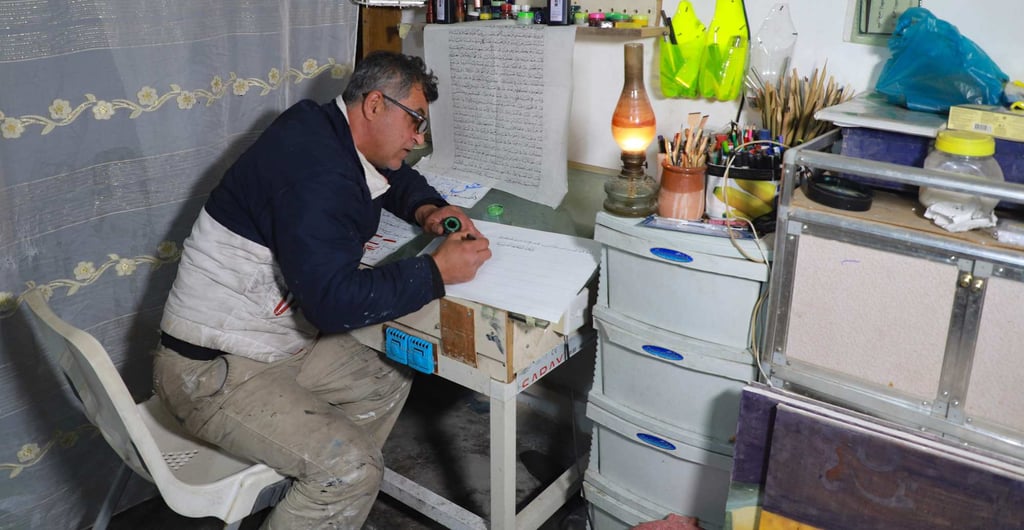Advertisement
Arabic calligraphy, recognised by Unesco but eclipsed by technology, and the artists in Iraq determined to see it survive
- Iraqi labourer Jamal Hussein is one of the devoted few still practising Arabic calligraphy, recently recognised by Unesco as intangible cultural heritage
- The curved, flowing script was once common on storefronts and building entrances, but with technology the number of specialised calligraphic artists has plunged
Reading Time:3 minutes
Why you can trust SCMP
0

When he is not hauling concrete blocks on a construction site in northern Iraq, Jamal Hussein devotes his time to preserving the gentle art of Arabic calligraphy.
Though he has won awards in numerous competitions, Hussein acknowledges that “you can’t live on this”, the artistic handwriting of Arabic script. “I have a big family. I have to find other work,” says the father of 11, who is 50 years old and earns his keep working on building sites in the Iraqi Kurdish town of Ranya.
The United Nations culture agency has just declared Arabic calligraphy an “Intangible Cultural Heritage of Humanity”, following a campaign by 16 countries led by Saudi Arabia and including Iraq.
“The fluidity of Arabic script offers infinite possibilities, even within a single word, as letters can be stretched and transformed in numerous ways to create different motifs,” Unesco says on its website.

Abdelmajid Mahboub from the Saudi Heritage Preservation Society involved in the proposal to Unesco says the number of specialised Arab calligraphic artists had dropped sharply.
Advertisement